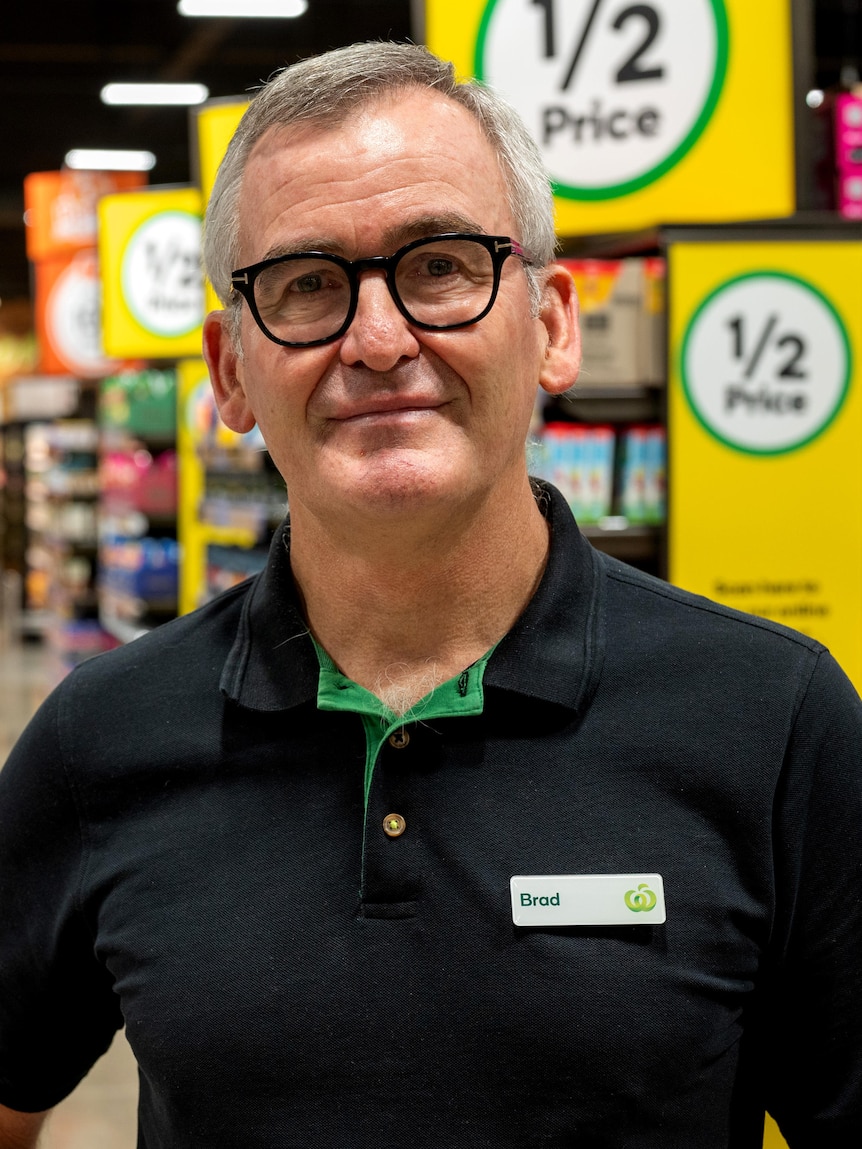Woolworths boss Brad Banducci has defended the amount of food the supermarket giant rejects with a top executive saying no one wants a banana that is “too big”, a South Australian parliamentary inquiry has heard.
The state select committee investigating grocery prices is one of several inquiries currently underway across the country, including one being led by the Australian Competition and Consumer Commission (ACCC).
Committee chair Robert Simms grilled Mr Banducci and Woolworths chief commercial officer Paul Harker on Tuesday about food waste, mark-ups from suppliers and increasing prices amid cost-of-living pressures.
Mr Banducci denied the company engaged in food dumping, saying its reject rate is about “1 to 1.5 per cent”.
“We reject very little when it comes into our business, that doesn’t mean that it’s not rejected before it gets to our business if you know what I mean, I think there’s an opportunity there,” Mr Banducci said.
“I think we already acknowledge that food waste at farm and actually at home are the two big opportunities.”
Mr Banducci said rejected produce is redirected to families in need and farmers but took a question on notice regarding how much each of those groups received.
Mr Harker said product standards are primarily driven by eating quality and its longevity.
“No one wants unripe strawberries or capsicums with mouldy centres and the like,” Mr Harker said.
“There are some aesthetic, there’s a banana that can be too big.
“A lot of people who eat bananas are children and younger people who don’t want something that’s around this big,” Mr Harker said as he gestured about 30 centimetres with his hands.
“They want something that’s reasonable to consume in a sitting as opposed to it contributing to food waste at home by only being able to eat half of it.”
Mr Simms said the community would be “astounded” to hear a giant retailer discarding fruit simply because it’s too large.
“I’m not sure that most people in the community would agree that a large piece of fruit represents a safety risk, but I’d let others be the judge,” Mr Simms said.
Consistent prices for customers
The outgoing Woolworths CEO did not support price regulation but said the supermarket giant has offered more product choices to customers as well as being overt on unit prices for better “transparency and clarity”.
“Regulation of 28,000 products that change dynamically every week would be an incredibly hard thing to imagine how you would do it,” Mr Banducci said.
Mr Banducci said unlike some of its competitors, food prices at Woolworth stores are the same across the country, with few exceptions in “extremely remote” locations.
His response followed Australian Bureau of Statistics data that revealed Adelaide had the biggest grocery price increase in the country at 16.4 per cent between 2021 and 2023.
“A number of the competitors that we compete with across the country, including in South Australia, would not follow the same pricing rules,” Mr Banducci said.
“They would price base on a location, whether they are close to a Woolworths or not, so their pricing will flex up much more than ours would.
“When we look at overall price index, I’m very focused on making sure it’s extremely competitive against Coles but critically important for us, Aldi.”
Mr Banducci further argued that Woolworths has been “a great mechanic in driving prices down” but said it has been careful not to create “unintended consequences” for farmers.
Last month, SA’s vegetable industry association AUSVEG told the committee there has been an average 300 per cent mark up between farm gate price and what the consumer pays.
Mr Harker added that the supermarket buys at wholesale prices, which is twofold of farm price “because we’re paying for people who can grade, pack and deliver finished food”.
“The farm gate price is not the price that we purchase goods at,” Mr Harker said.
Mr Harker said Woolworths does not engage in the practice of flooding the market, where producers are pressured to grow more than needed, in turn lowering their sale prices.
“Pricing is ultimately determined by supply and demand,” Mr Harker said.
Mr Banducci said if Woolworths chose to make no profits, customers would save about $5 a week on their grocery bills.
He said he did not receive a pay rise as part of his exit pay package and last year store employees received salary increases of more than 6 per cent with superannuation.




